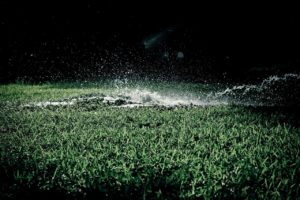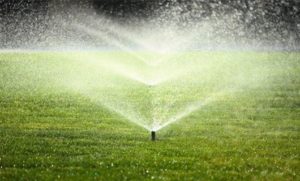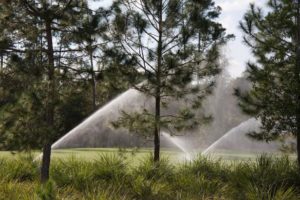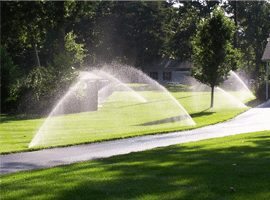How Sprinkler Systems Can Help You Avoid Over-watering & Save You Money
Water is an essential resource and in Florida conserving our limited water supply is critical. Follow these simple recommendations for conserving water to avoid over-watering your lawn.
Irrigation System over-watering is caused by:
- Out of date controllers (10 years+)
- Rain Sensor Malfunctioning
- Sprinkler Heads Missing
- Broken Sprinkler Heads
- No Rain Sensor
- In-efficient irrigation system
- Sprinkler Zones set to run too long or not long enough
- Sprinkler Heads Not Adjusted Properly
- Broken Pipes
- Leaky irrigation pipes
- Leaky lawn sprinkler valve
- Sprinkler Head Leaks
- Broken Sprinkler Valves
- Leaks under Driveway
- Irrigation Controller Malfunctioning
- Sprinkler Heads too low or too high
- Leaky Sprinkler Head
- Sprinkler Heads in wrong locations
 As your sprinkler system ages, irrigation system watering efficiency will worsen and essentially waste water, costing you more money. Maintenance becomes more crucial as your lawn sprinkler system gets older.
As your sprinkler system ages, irrigation system watering efficiency will worsen and essentially waste water, costing you more money. Maintenance becomes more crucial as your lawn sprinkler system gets older.
Even during frequent rainy periods your lawn sprinkler system could be malfunctioning and/or over-watering & the effects can damage your grass and landscaped beds.
Florida grass needs between 1/2 inch to 3/4 inch of water twice a week.
The Irrigation System watering and daily rainfall can easily exceed 3/4 inch of water per week. We can’t stop the rain, but we can limit or shut off the irrigation system from adding water to the total the rainfall accumulation by installing a rain sensor or moisture sensor.
Over-watering creates an excess flow of water that carries soil nutrients and organic material out of the yard as runoff. Your grass may be robbed of nitrogen and other vital nutrients that may turn your lawn and shrubs yellow or light green.
ATZ Irrigation recommends annual lawn sprinkler maintenance check-ups to determine if your system is working correctly and if you have an over-watering problem. Call us (727) 937-7177
Proper Sprinkler watering
- When used properly, your sprinkler system will save you money while keeping your lawn beautiful and healthy.
- It’s also important that your irrigation system is equipped with rain sensors to turn the system off in the event of a rainstorm during scheduled watering.
- Knowing how to pause your system from its normal routine is important when rain is imminent.
- New controllers are more user friendly and make it easy to fine tune the sprinkler system
- Keep up to date with your local watering restrictions
Harmful Effects of Irrigation System Over-watering
Over-watering makes your lawn susceptible to pests and diseases by interfering with health and the growth of the grass. There are 4 areas of concern when it comes to over-watering:
Thatch: Also known as brown or dead spots is a layer of partially decomposed grass cutting, organic debris, roots, and runner that create a dense fabric on top of the soil. Too much watering inhibits microorganisms from breaking down this dense fabric. As a result, the thatch becomes thicker; the turf develops a shallow root system A shallow root system is bad because the turf is less drought persistent.
Fungus: Over-watering promotes fungal growth and an obvious sign of over-watering is the growth of mushrooms in the lawn. Also, another symptom of fungal growth is unhealthy looking yellow to rust colored grass known as Anthracnose.
Weeds: There are some annoying weeds that thrive and grow during over-watering conditions. The most prolific weeds are crabgrass and nutsedge that crowd out healthy grass growth during wet weather.
Pests Breeding Ground: Over-watered yards or water saturated areas are the perfect environment for the insects like mosquitoes to breed. Insects such as white grubs that are the larvae of June beetles will feed on grass roots, wilt the grass and eventually kill the grass. Also, army-worms and cutworms chew and cut grass blades at the base and causing brown dead patches. For help with outdoor pest control call our partner Always Green. Or call us at ATZ to schedule a visit.
All of these symptoms can be avoided with a properly installed and maintained irrigation system.
If this sounds like your current system Call ATZ Irrigation today!
For the past 30 years we have earned the reputation as #1 for being “quick & reliable.” We are a fully licensed irrigation company that does lawn sprinkler repairs and installations throughout all of the Tampa Bay area.
Call us at (727) 937-7177 or contact us by clicking here: sprinkler repair request



